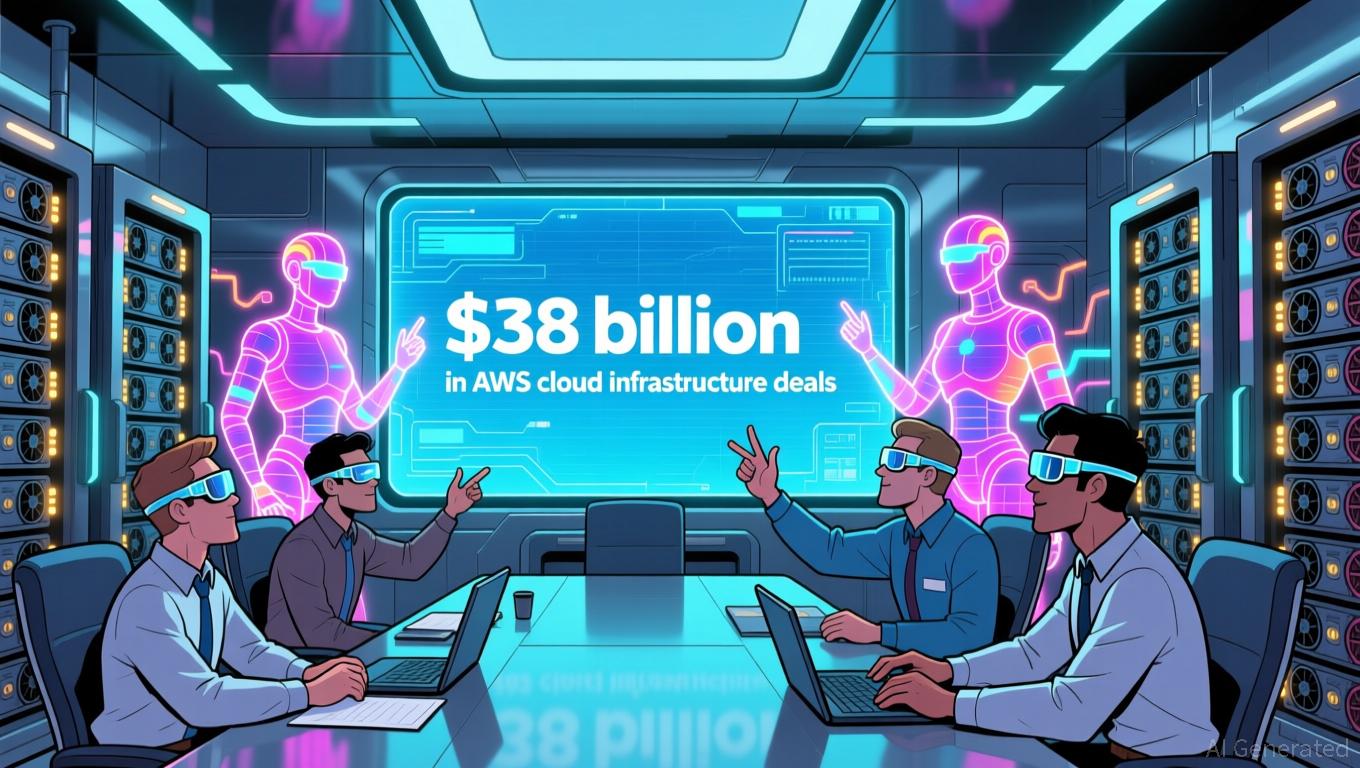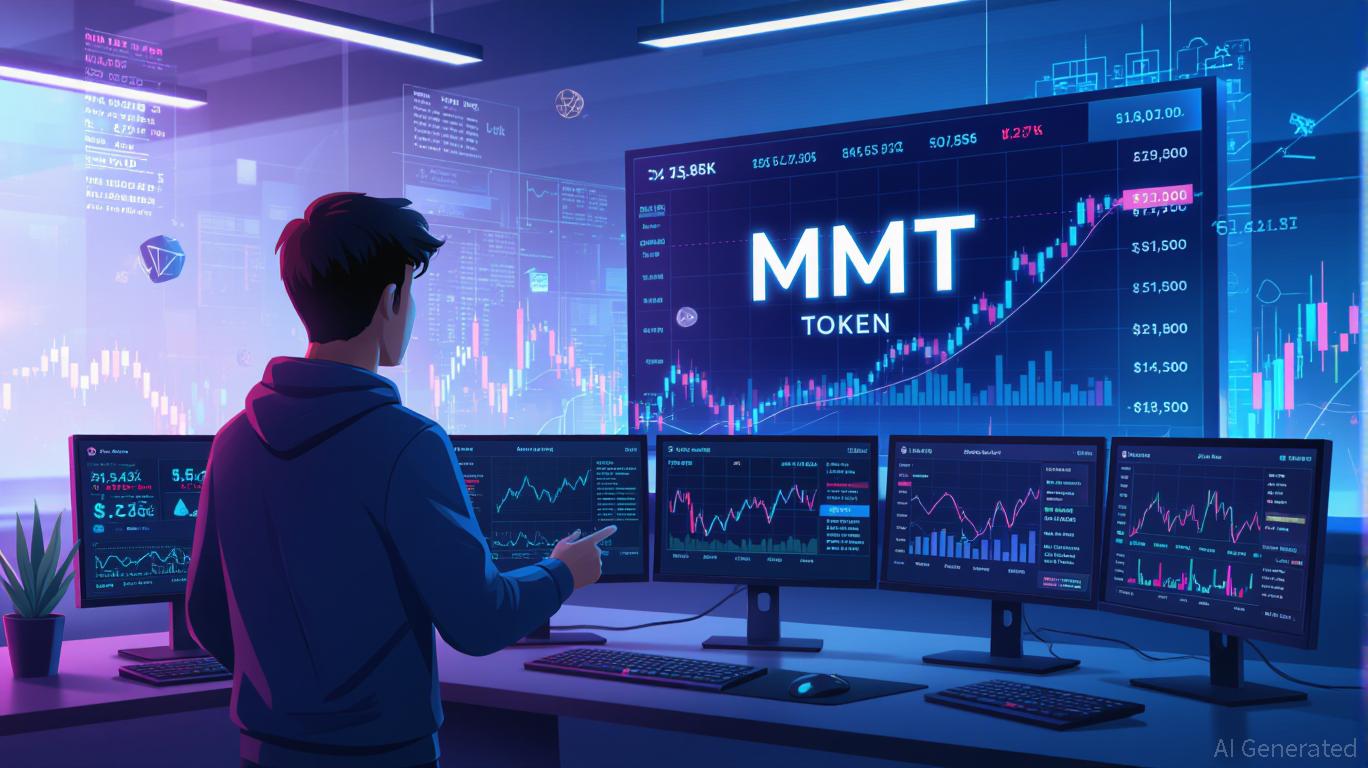OpenAI's $1.4 Trillion AI Risk: Will Altman's Refusal of a Bailout Succeed?
- OpenAI CEO Sam Altman rejected "too big to fail" claims, asserting the AI firm rejects government bailouts and state intervention in business decisions. - A $38B AWS partnership provides OpenAI with 100K+ Nvidia GPUs and millions of CPUs, diversifying cloud reliance after a $500B PBC restructuring with Microsoft . - Altman projects $20B annual revenue by year-end and $100B+ by 2030, despite $1.4T infrastructure spending plans raising sustainability concerns among analysts. - Political scrutiny grows as F
Sam Altman, the head of OpenAI, has strongly dismissed suggestions that his organization is "too big to fail." He stressed that OpenAI is not seeking any government backing or taxpayer-funded rescues to support its significant infrastructure investments. Through several public comments and a comprehensive post on X, Altman reaffirmed OpenAI’s opposition to government involvement in the industry, stating, "We do not believe governments should decide which companies succeed or fail, nor should taxpayers be responsible for rescuing businesses that make poor choices," as reported by Business Insider.
These statements follow OpenAI’s recent $38 billion collaboration with

Altman’s remarks reflect broader worries about whether OpenAI’s rapid growth is financially sustainable. The company has pledged to spend $1.4 trillion on computing infrastructure over the next eight years, sparking doubts about its ability to generate enough income. Nevertheless, Altman remains optimistic about OpenAI’s future, forecasting an annual revenue run rate of $20 billion by the end of the year, with the possibility of reaching hundreds of billions by 2030. He indicated that enterprise solutions, consumer hardware, and robotics will be key revenue drivers, as he explained to the media and in public statements.
This discussion has attracted political attention, especially from Florida Governor Ron DeSantis, who criticized the "too big to fail" label and pointed out that OpenAI has not yet achieved profitability. DeSantis also noted the company’s strong connections with major tech firms like Microsoft and Amazon, cautioning against excessive concentration of power in the AI industry, according to Benzinga.
Meanwhile, David Sacks, the White House’s AI advisor, made it clear that federal bailouts for AI companies are not being considered, echoing Altman’s stance against government intervention, as reported by Yahoo Finance.Experts in the market remain split. While the AWS deal has lifted Amazon’s share price and strengthened AWS’s position in the AI infrastructure sector, some warn that the surge in AI spending could be unsustainable. OpenAI’s projected costs—expected to reach $1 trillion by 2030—currently exceed its revenue, raising doubts about its long-term prospects, as Coincodex notes. Nvidia, which stands to benefit greatly from the agreement, continues to see high demand for its chips, but the growing energy requirements of AI pose significant sustainability and resource challenges, according to WebProNews.
OpenAI’s shift to a PBC model and its adoption of a multi-cloud strategy highlight its efforts to balance innovation with fiscal discipline. The company’s future will depend on its ability to manage regulatory pressures, attract private funding, and meet its revenue targets—without turning to government assistance.
Disclaimer: The content of this article solely reflects the author's opinion and does not represent the platform in any capacity. This article is not intended to serve as a reference for making investment decisions.
You may also like
Trump's legal action against the BBC sparks a debate on journalistic ethics and the responsibility of the media in a democracy
- Trump sues BBC over edited Jan. 6 speech in Panorama documentary, demanding $1B in damages and a retraction. - BBC admits "systemic error" in splicing Trump's remarks to imply incitement, prompting resignations of top leaders. - Legal experts question lawsuit viability under U.S. defamation law, noting risks of exposing Trump's own incendiary rhetoric. - Critics argue Trump's legal actions against media aim to suppress critical coverage, threatening press freedom and editorial independence. - The case re

Self-driving truck company Einride intends to enter the public market through a SPAC merger
Teradar secures $150 million for a sensor it claims outperforms both lidar and radar
The MMT Token TGE and Its Impact on DeFi Market Trends
- Momentum (MMT) token's 2025 TGE secured $10M funding from Coinbase Ventures, OKX, and Jump Crypto, valuing it at $100M. - Binance allocated 0.75% genesis supply via HODLer Airdrop, while post-TGE price surged 1330% from liquidity incentives. - Divergent from traditional MFS Multimarket Income Trust (NYSE: MMT), the DeFi token faces volatility risks despite institutional interest. - Strategic entry points for institutions hinge on regulatory clarity, utility validation through RWA integrations, and liquid
